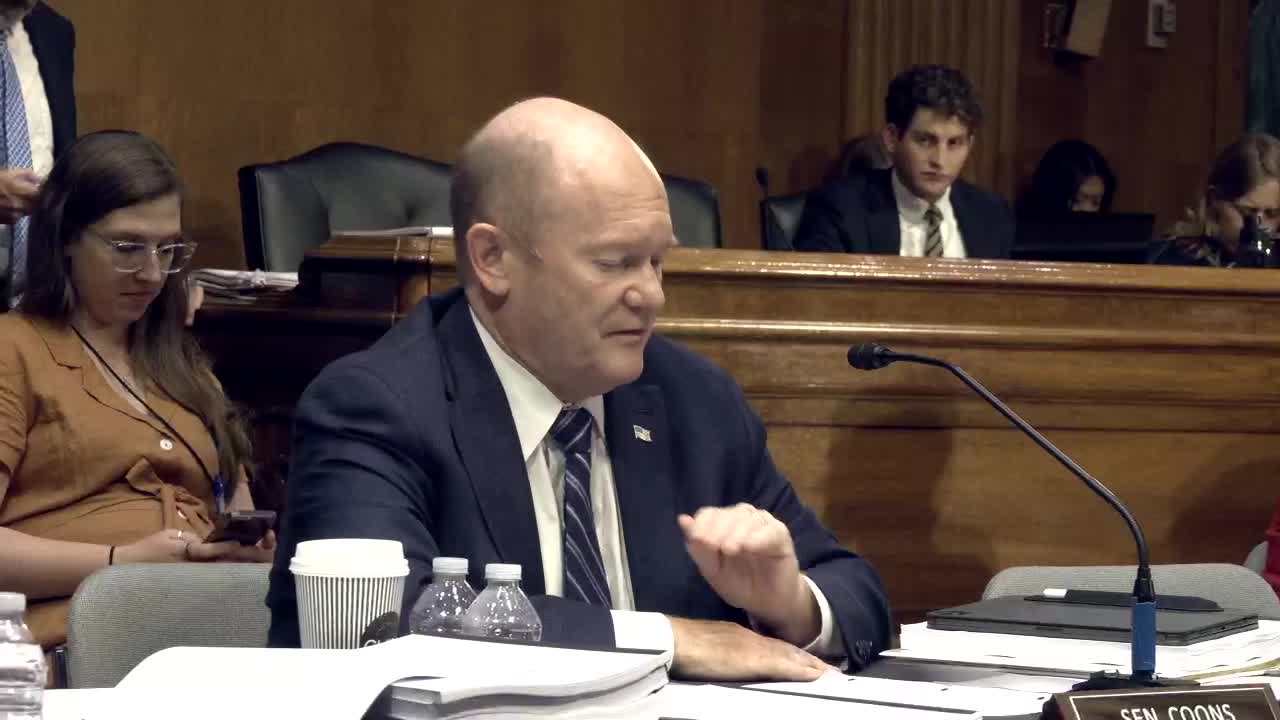Senators Push for $1.25B AmeriCorps Funding and $100M for ALS Research
July 31, 2025 | Appropriations: Senate Committee, Standing Committees - House & Senate, Congressional Hearings Compilation
This article was created by AI summarizing key points discussed. AI makes mistakes, so for full details and context, please refer to the video of the full meeting. Please report any errors so we can fix them. Report an error »

The U.S. Senate Committee on Appropriations convened on July 31, 2025, to discuss critical funding allocations in the Defense and Labor, Health and Human Services, and Education Appropriations Acts. The meeting highlighted significant investments in health research and community service programs, reflecting a bipartisan commitment to addressing pressing national issues.
One of the key topics was the proposed funding of $1.25 billion for AmeriCorps, a long-standing program that engages citizens in community service. Senators emphasized the program's positive impact across the nation, underscoring the importance of supporting initiatives that foster civic engagement and address local needs.
Another major focus was the allocation of $100 million for research into Amyotrophic Lateral Sclerosis (ALS), a neurodegenerative disease that affects thousands of families. Senator Murkowski, who has personal ties to the disease, expressed the urgency of investing in ALS research, stating that this funding could bring hope to affected families. This investment is part of a broader commitment to enhance funding for the National Institutes of Health (NIH), which will see an increase of $400 million in the next fiscal year.
Senator Durbin raised concerns about the current state of NIH funding, noting that many research projects have faced delays due to frozen grants. He highlighted the situation at Northwestern University, where $160 million in NIH-approved research funding has been halted, impacting critical studies, including those aimed at developing innovative treatments for congenital heart defects in newborns. This situation illustrates the broader implications of funding uncertainties on medical research and patient care.
The discussions during this markup session reflect a concerted effort by the Senate to prioritize health research and community service, recognizing their vital roles in improving public health and fostering community resilience. As the committee moves forward, the outcomes of these funding decisions will be closely watched, particularly by those in the medical research community and families affected by diseases like ALS. The next steps will involve further deliberations and potential amendments as the appropriations process continues.
One of the key topics was the proposed funding of $1.25 billion for AmeriCorps, a long-standing program that engages citizens in community service. Senators emphasized the program's positive impact across the nation, underscoring the importance of supporting initiatives that foster civic engagement and address local needs.
Another major focus was the allocation of $100 million for research into Amyotrophic Lateral Sclerosis (ALS), a neurodegenerative disease that affects thousands of families. Senator Murkowski, who has personal ties to the disease, expressed the urgency of investing in ALS research, stating that this funding could bring hope to affected families. This investment is part of a broader commitment to enhance funding for the National Institutes of Health (NIH), which will see an increase of $400 million in the next fiscal year.
Senator Durbin raised concerns about the current state of NIH funding, noting that many research projects have faced delays due to frozen grants. He highlighted the situation at Northwestern University, where $160 million in NIH-approved research funding has been halted, impacting critical studies, including those aimed at developing innovative treatments for congenital heart defects in newborns. This situation illustrates the broader implications of funding uncertainties on medical research and patient care.
The discussions during this markup session reflect a concerted effort by the Senate to prioritize health research and community service, recognizing their vital roles in improving public health and fostering community resilience. As the committee moves forward, the outcomes of these funding decisions will be closely watched, particularly by those in the medical research community and families affected by diseases like ALS. The next steps will involve further deliberations and potential amendments as the appropriations process continues.
View full meeting
This article is based on a recent meeting—watch the full video and explore the complete transcript for deeper insights into the discussion.
View full meeting